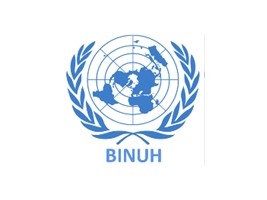|
||||||||||||||||||
|
|
Haiti - UN : The humanitarian situation is worsening indicates the BINUH report 26/02/2021 08:42:45
According to the 2021 Haiti Humanitarian Needs Overview, to be published in March 2021, 4.4 million people were expected to require humanitarian assistance during the course of the year. To address those needs, the 2021–2022 Humanitarian Response Plan, to be launched in early March, was to target 1.5 million of the most vulnerable people in 65 out of 146 communes. A budget of $235.6 million would be required for the response. Most humanitarian needs in Haiti are chronic and due to development deficits. The operationalization of the humanitarian/development/peace nexus is therefore of paramount importance to reduce risks and vulnerabilities that engender humanitarian needs. Reflecting the adverse humanitarian situation, food insecurity and malnutrition rates rose over the past year. Inflation, low crop yield due to below-normal rainfall and restrictions related to the COVID-19 pandemic affected the purchasing power of the poorest households and their ability to have access to food, although the cost of food decreased somewhat in the months prior to the present report owing to the depreciation of the United States dollar against the Haitian gourde. Nevertheless, an updated Integrated Food Security Phase Classification analysis showed that some 4 million people were affected by acute food insecurity between August 2020 and February 2021. Malnutrition among children also remained a major concern, with 2.1 per cent of boys and girls in the country facing severe acute malnutrition. In response to those concerning trends, the World Food Programme initiated two large emergency assistance projects funded by the Government of Haiti, with support from the Inter-American Development Bank and the World Bank, to assist approximately 750,000 vulnerable people affected by the COVID-19 crisis with cash transfers and food rations. The protests of 2019 and 2020 continued to affect the education sector. Since the official relaunch of the new school year in August 2020, approximately 30 per cent of students, more than 750,000 girls and boys, had not returned to school. That exacerbated the impact of the 2019/20 “lost” school year, when about 4 million children across Haiti were unable to attend school owing to extensive school closures resulting from the peyi lok period of civil unrest, as well as measures related to COVID-19 and insecurity due to gang activities. Absences from school impact children’s access to food through school feeding programmes. Furthermore, being out of school increases protection concerns for children, exposing them to increased risks of sexual violence and early pregnancy. Protection risks also persisted for Haitian migrants. Some 1,444 Haitian migrants were repatriated to Haiti from other Caribbean and Latin American countries between 1 June 2020 and 17 January 2021. In addition, 185,590 Haitian migrants voluntarily returned from the Dominican Republic between the beginning of the COVID-19 crisis in March 2020 and 1 November. Returns had nearly tripled since 2019, owing mainly to the loss of jobs in the tourism, agriculture and construction sectors in the Dominican Republic. As most people cross the border at any of the 100 informal crossing points, not only are they exposed to higher risks of contracting and transmitting the COVID-19 virus, but women and children are also at greater risk of trafficking and other abuses. HL/ HaitiLibre
|
|
|
Why HaitiLibre ? |
Contact us |
Français
Copyright © 2010 - 2024 Haitilibre.com |



